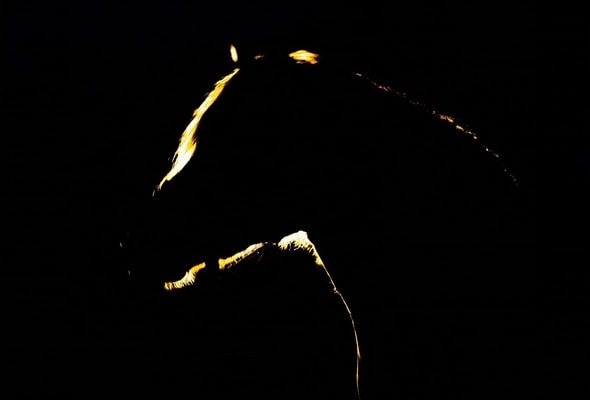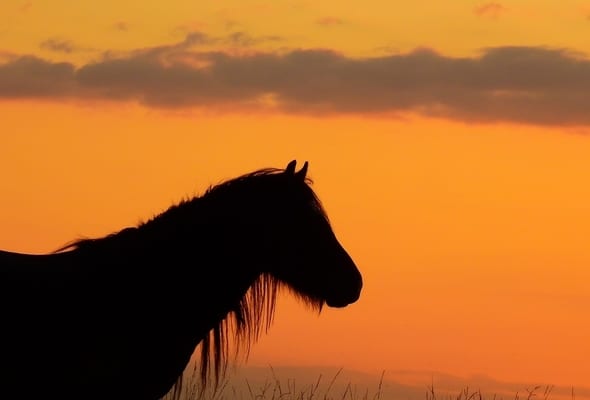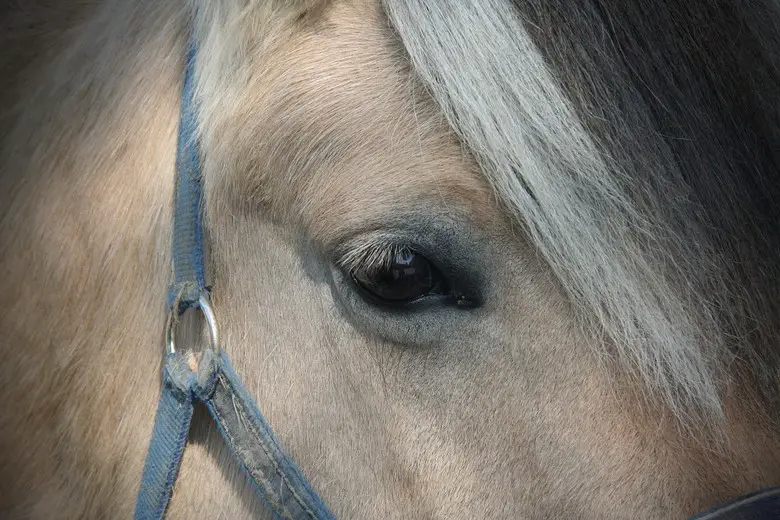Horses are fascinating creatures. Once the primary mode of transport for most of the world, they have since been replaced by cars. As we no longer encounter horses on a regular basis, many people have grown unfamiliar with the habits of these large and majestic animals. What do horses eat? How long do they live? Do horses sleep at night?
Do Horses Sleep At Night?
Unlike people, horses do not sleep through the night. In fact, horses are not even diurnal animals, and will doze off periodically throughout the day and during the night, sleeping for short intervals to get their rest. As such, horses are incredibly light sleepers.
While we may no longer consider horses to be integral to our societies, they once served as the backbone of human history and development. Before the invention of steam and combustion engines, horses performed most of the heavy lifting when it came to transporting people and goods, enabling civilizations to spread across the globe.
Known for their speed and power, horses hold a special place in our cultural imagination.
Given that horses are hard-working and large animals, it may surprise you to learn that they do not get a full night’s sleep. Even those of us who are physically inactive have a hard time imagining what it would be like if we only slept for 15 minute intervals a couple times a day.
With that in mind, it may be even more surprising for you to learn that these light sleepers manage to subsist almost entirely on grasses. Moreover, the two are connected, and their diet and biology play large roles in determining their sleep cycles and behavioral habits.
In this article we’ll go into how horses sleep, when they sleep, and why their sleeping schedule consists mostly of short naps.
Why Don’t Horses Sleep At Night?
This question might be slightly disingenuous, as horses do sleep periodically throughout the night–they just don’t sleep much, nor do they sleep more at night than they do in the day.

Unlike humans, horses do not have fixed sleeping schedules, and when they sleep is largely determined by necessity and their sense of security. Because of this, it is hard to predict when a horse will need and take its rest.
To begin with, it’s important to understand that horses are herbivores and social animals. They are also prey for larger predators such as wolves and big cats. Because they are vulnerable to attacks from carnivores, horses remain on constant alert, keeping one eye open at all times in case of a threat.
As social animals, horses typically live in roaming herds that travel across open plains, grazing together as an extended family.
They travel from location to location as food reserves dry up and the seasons change. Horses are enormous, and a herd of them can consume quite a lot of grass, so it is necessary for them to travel great distances in search of food.
Members of a herd look out for one another–while there are no longer truly wild horses, we recognize this behavior in feral herds and among zebras, a close relative of the horse. As one member of the herd dozes, others watch on, keeping their eye out for potential threats. In the event of an attack, a horse has to be prepared and ready to escape an assault. For this reason they tend to be light sleepers.
How Do Horses Sleep?
Just as fascinating as their sleeping schedules, the way horses sleep may also surprise you. Rather than lying on the ground as we would, horses can sleep standing up, ready to sprint away if they sense an impending threat.

As we alluded to above, horses can be incredibly skittish. Their main defense against predation is escape. With their powerful legs and incredible stamina, these animals are built to run, capable of sprinting for long distances without breaks.
In the event of an attack, it is necessary that a horse is in a position to escape as quickly as possible. This contributes to their light sleeping habits and also explains why they sleep standing up.
A horse on the ground is vulnerable, and the few seconds it takes a horse to stand can mean the difference between life and death. Sleeping upright allows these animals to go from sleeping to a full on sprint on a moment’s notice.
How Do Horses Stand While Sleeping?
You may be wondering how they do this without falling over. When we fall asleep our muscles relax, and we lose control of our bodies. With horses this is not the case–their bodies are specially designed to stay rigid without the risk of collapsing while dozing.
To explain this, it’s important to understand their biology. Horses possess a system of ligaments in their legs called the “stay apparatus.” These ligaments and muscles are incredibly taught and provide tension against the horse’s leg bones.
In part, these ligaments contribute to how quickly and efficiently a horse can gallop, as the tension in these ligaments increases the reactivity of their legs, enabling horses to trot or gallop at incredibly high speeds without wasting energy.
Along with aiding the horse’s movements, the ligaments in their legs also allow the joints in their knees to lock when the animal is standing still. By locking their joints, the horse’s weight rests almost entirely on its skeleton, relieving the muscles of the tension necessary to hold a horse upright.
Conclusion
As we’ve learned, horses do not get a full night’s rest. They sleep only for short intervals periodically during both day and night. Since the darkness of night can conceal a lurking predator, it is essential for horses to stay alert at all times, and sleeping heavily comes with the risk of danger. Notably, foals tend to sleep more than adult horses, as their developing bodies require more rest.
As light and infrequent sleepers that are often cautious around humans, it is highly unlikely that you will catch a horse sleeping. In fact, a horse may only feel comfortable taking its rest once you have gone. For this reason, it is important to provide them the space they need to relax.

